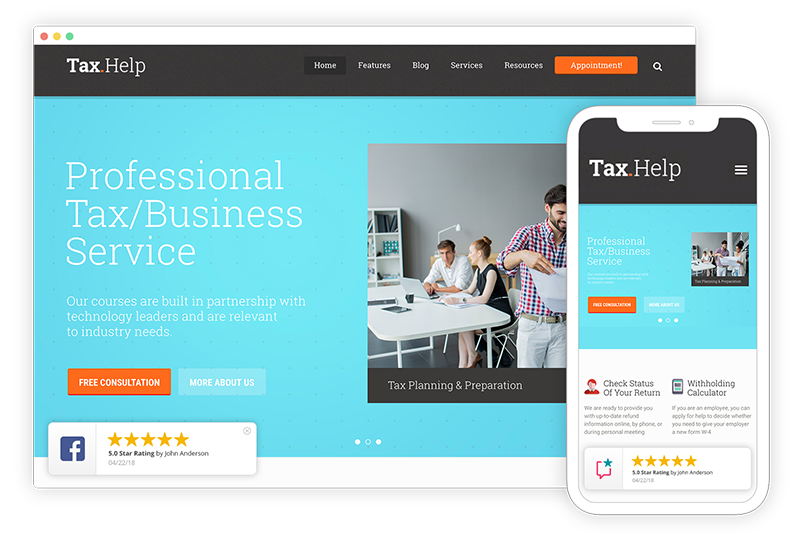When my children were in elementary school and I would say that I loved something like asparagus, they would respond with, what for them was clever, school yard repartee: “Why don’t you marry it?!?” Like many childhood jokes it went on ad nauseam but as time wore on it became more of a family tradition and an inside joke. To this day we still say it to each other as an act of bonding and understanding.
So when I say that I love 1st-party reviews I can hear them say: Why don’t you marry them? Well I just might I love them that much.

My wonderful kids who are now wonderful adults.
The World Of Reviews Can Seem Crazy
The reviews ecosystem today is unpredictable, unstable and at times downright crazy. Let’s just take a look a few recent examples of “reviews gone wild” that cover review spam, removal, fake reviews and even attacks.
- Google suddenly takes down anonymous reviews from years ago that you worked hard to get
- Reviewers who have never shopped with you, leave negative fake reviews
- Competitors leave negative reviews which Google won’t take down
- Ex-employees or worse ex-spouses can’t resist one last shot
- Yelp buries all of your positive reviews due to their algorythm design
- Someone is attacking you with negative fake reviews.
- Someone is attacking you with positive fake reviews. (Hello?)
- Yelp comes up with kockamamy rules and punishes you for doing what you have always done, ask your customers for reviews.
- Google, despite having the best engineers in the world, can’t sniff out review spam to save its soul.
It is ALL too crazy. In this sometimes surreal world of reviews business owners feel that they have no choice but to “go along” with the whims of Yelp, Google and others in the review space. It’s been known to drive some business owners insane.
Take Control Of Reviews
There is an antidote to the madness. Or at least a partial one. And it is one that I personally have grown to appreciate more and more as time goes on: Ask for your own reviews.
Reviews that you ask for yourself are referred to as 1st-party reviews as opposed to reviews that occur on 3rd-party sites like Google. Asking for your own reviews allows you take back some measure of control and gain some agency in a world that all too often seems random and downright painful.
Why I recommend them:
1- Ownership
You should own your digital assets not rent them. This holds as true for reviews as it does for your website. Doing so gives you control of the process and assets in a way that can truly help you be a better business AND help you communicate that difference to the world more effectively.
Owning your reviews provides the assurance that you will always have access to them and can use them in a way that serves your and your customers interests – forever. 3rd-party reviews are often hostage to the whim of the host and the sands there can easily shift out from under the business owner.
2- Control of the Rules
The Yelp, Trip Advisor and Google review rules and Terms of Service are designed to benefit them. For example Google thinks that someone that knocked on your door during off hours has the right to leave you a review complaining about your hours. Yelp thinks that negative reviews are more important than positive ones and they do all they can to encourage snark.
With your own reviews you can create rules and terms that make sense to the way you do business. Only want reviews from your own real customers that completed an experience and transaction? That’s reasonable. Just ask real customers for those reviews.
3- Website Content
It’s hard creating updated fresh content for the product, service and professional pages on your website. User generated content in the form of 1st-party reviews dramatically simplifies that. This content stays fresh and can provide nuances about your services and staff that only customers can provide. With our tagging feature you can not only identify relevant content for you selling & services pages, but auto populate review (fresh) content to those pages.
This is keyword rich and very compelling content. It doesn’t just help visitors understand what other consumers think about that good or service, it helps Google understand it as well.
Here are two examples of the tagging in actual use to generate page specific content:
- Moscow Family Eye Care uses the feature to place reviews about specific practitioners on their own web pages.
- Barbara Oliver Jewelry posts many mentions of engagement, the best place to buy engagement rings on her engagement ring page.
Tagging is currently available to all accounts. However, both Moscow Family Eye and Barbara Oliver are beta testing our new auto-tagging features that automatically identifies which 1st-party review feedback contains the targeted keywords so the process of adding new reviews to the targeted pages is totally hands-off. (If you are interested in joining our auto-tagging beta please contact me)
4- Increased Website Conversions
Having this content placed directly on the critical pages of your sites gives consumers not just more information but the confidence to decide to buy from you. Social proof is a great way to increase your conversions.
With our new Conversion PopUp we can provide this social proof on their entire website or just on a few pages so that consumers can see that your reviews are fresh and come from around the web.
5- A More Accurate Sample of Customer Sentiment
Typically reviews on Yelp and Google skew towards really really good or really really bad. You as a business owner miss out on the feedback of the vast majority of your client base. Consumers are willing to provide direct reviews at rates significantly higher than they are willing to leave reviews at a site like Google. On average, we see a business capture 10 times the amount of 1st-party reviews over 3rd-party reviews. That is a lot of data to inform your customer experience data.
This more accurate and larger collection of feedback provides a better basis for improving your business – it is not just that the sample is more representative of your customers’ experience, it’s that you need to understand all of your customers needs not just a few self selecting ones.
1st-party reviews are likely to be more authentic as well. The consumer is not writing for the masses on Google or Yelp, hoping for votes, laughs or prominence. They are just talking to you the business about their experience without the thought of being an “influencer”, getting points or being noticed.
The more information you have about what is great, what is bad and what is just meh can better help you understand what you need to change to be able delight everyone.
6- Improved SEO
Google not only indexes your pages more frequently and understands your services better because of the updated user generated content, they will display your review content with prominent rich snippet stars in the results. We have seen various studies showing click through rate increases from 35 – to 200%.
7- Longevity
No matter what Google or Yelp or for that matter Facebook do with your hard earned reviews, they can’t take your own reviews away from you. Even if the review world of Google or Yelp or Facebook goes topsey turvey and they get rid of reviews, you will still have your valued testimonials about your business.
8- With rights come responsibilities
Just because you are no longer as beholden to Google or Yelp’s reviews doesn’t mean there are not rules that you need to follow. There are and they are dictated by the Federal Trade Commission and your State Attorney General.
These rules are simple:
- If you use incentives of any sort it must be stated clearly in the review itself. Even though it is permissible if you properly notate each incentivized review, it really is best to avoid this practice as it not only makes compliance harder, it compromises consumer trust.
- If you use testimonials in your marketing they need to reflect the general consumer sentiment about your business. In other words if you are really a 4.5 business, you should not be picking only reviews that show that you are a 5 star business.
- As long as your reviews do reflect your actual real world average you have some leeway under the guidelines in terms of not showing some reviews but you should have a formal review policy so if there are reviews you are not showing there is a legitimate reason.
As a note the FTC guidelines don’t mean that you have to show bad reviews right away. FTC policy makes no statement about the speed with which you need to post reviews. You can take a week or 10 days to attempt to resolve the issue and ask for another review before you do decide to show it.
The FTC Guidelines are available here and they are worth a read.
A Balanced Reality
The reality is that I love my wife way too much to ever think of marrying 1st-party reviews. And my assessment of them isn’t to say that reviews at Google, Yelp, Facebook are not worth getting. They are.
Your own 1st-party reviews are not going to replace reviews at Google, Trip Advisor or the BBB, at least not for the foreseeable future. But 1st-party reviews offer a great number of benefits that almost any business can and should take advantage of. They provide a buffer against the constant sea of changes at review sites where you have no control and serve as a great asset in your reputation management efforts.
My main point is that gathering and managing your own reviews offers a long term sustainable benefit and that it should be part and parcel of every review plan. It is a tactic that is easy to implement and maintain and should be part of every marketing tool kit.
GatherUp can help automate all of these benefits and more but if you are a do-it- yourselfer Miriam Ellis wrote this very valuable: The Complete Guide to Creating On-Site Reviews + Testimonials Pages
Whether you want to marry 1st-party reviews or not, the time has come for you to start your own review program.



Comments are closed.